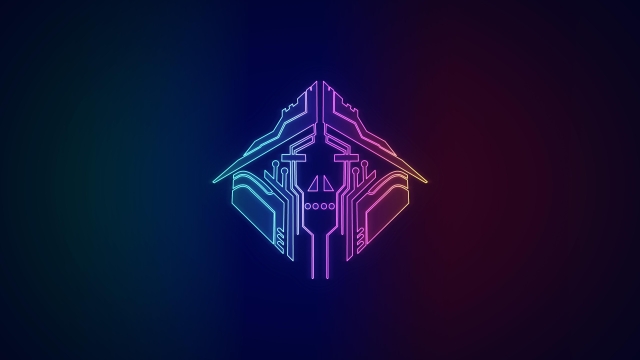In a world where technology is rapidly evolving, it comes as no surprise that the world of finance is also undergoing a significant transformation. One of the most intriguing developments in recent years is the rise of cryptocurrency. This digital form of currency, enabled by groundbreaking blockchain technology, has spurred a revolution in the way we think about money, transactions, and the future of decentralized finance.
Cryptocurrency offers a myriad of possibilities and opportunities that were previously unimaginable. Gone are the days of relying solely on traditional banking systems or governmental regulations. With crypto, individuals have the power to control their own financial destiny, free from the limitations and fees imposed by centralized entities. This new era of financial freedom is empowering individuals across the globe, fostering a sense of self-reliance and financial inclusion like never before.
But what exactly is crypto? At its core, cryptocurrency is a digital or virtual form of currency that uses cryptography for secure financial transactions, control the creation of new units, and verify the transfer of assets. Bitcoin, the pioneering cryptocurrency introduced in 2009 by the mysterious Satoshi Nakamoto, paved the way for this innovative financial ecosystem. Since then, thousands of cryptocurrencies have emerged, each with its own unique features, goals, and communities.
Crypto enthusiasts, also known as "hodlers," see a world where transactions are efficient, transparent, and secure. They envision a future where middlemen are eliminated, financial services are accessible to all, and trust is embedded in the very fabric of the system. The power of crypto lies not only in its ability to revolutionize traditional financial systems but also in its potential to transform various industries such as supply chain management, intellectual property, and even governance.
In this article, we will explore the exciting world of crypto, delving into the key concepts, its potential impact, and the challenges it faces. Join us as we embark on a journey into the future, where decentralization reigns supreme, and the possibilities are limited only by our imagination. Get ready to unravel the mysteries and opportunities that crypto presents, and discover why the future truly is decentralized.
Understanding Blockchain Technology
Blockchain technology is at the heart of the crypto revolution. It is a decentralized ledger system that allows secure and transparent transactions without the need for intermediaries.
At its core, a blockchain is a chain of blocks, each containing a list of transactions. These blocks are linked together using cryptography, creating an immutable and tamper-proof record of all the transactions that have ever taken place on the network.
One of the key features of blockchain technology is its decentralized nature. Unlike traditional centralized systems, where a single authority controls the data and transactions, blockchain relies on a network of computers, called nodes, to validate and record transactions. This ensures that no single entity has full control over the network, making it highly resistant to censorship and manipulation.
Another important aspect of blockchain is its transparency. All transactions recorded on the blockchain are visible to anyone on the network. This openness allows for greater trust and accountability as it becomes nearly impossible to alter or falsify records without the consensus of the entire network.
Blockchain has numerous applications beyond cryptocurrencies. It has the potential to revolutionize industries such as supply chain management, healthcare, finance, and more. By removing the need for intermediaries and improving security, blockchain technology holds the promise of streamlining processes, reducing costs, and enhancing trust in various sectors of the economy.
In the next sections, we will explore the fascinating world of cryptocurrencies and how they leverage blockchain technology to reshape our financial landscape. Stay tuned for an exciting journey into the future of decentralized finance.
The Rise of Cryptocurrencies
Cryptocurrencies have emerged as a revolutionary force in the financial world, disrupting traditional systems and paving the way for a decentralized future. With the advent of blockchain technology, crypto has gained widespread attention and adoption, reshaping the way we perceive and interact with currency.
Mayfaircapitalmarket.com
One of the key factors driving the rise of cryptocurrencies is their ability to provide greater financial inclusivity. By eliminating the need for intermediaries and central authorities, crypto enables individuals from all corners of the globe to participate in the global economy. This newfound accessibility has empowered the unbanked population, allowing them to send and receive funds securely and without geographic limitations.
Additionally, the decentralization of cryptocurrencies has sparked a new wave of innovation. With blockchain as the underlying technology, crypto has opened up avenues for creating smart contracts, decentralized applications, and even new financial instruments. This has fueled the development of a vibrant ecosystem, attracting talented individuals and entrepreneurs from various industries, all contributing to the growth and expansion of the crypto landscape.
Moreover, the rapid appreciation in the value of cryptocurrencies has also played a significant role in their rise. With Bitcoin leading the way, many cryptocurrencies have seen substantial returns on investments, attracting both individual investors and institutional players. Such returns have sparked interest and curiosity about the potential of cryptocurrencies as a store of value and an alternative investment asset class.
In conclusion, the rise of cryptocurrencies is a testament to the growing acceptance and excitement surrounding this innovative technology. With its potential to transform traditional financial systems, provide financial inclusivity, drive innovation, and offer lucrative investment opportunities, the future of crypto is indeed promising. As we venture further into this decentralized realm, we are embarking on a journey that has the potential to reshape the way we perceive and interact with money.
Applications and Potential of Decentralized Finance (DeFi)
Decentralized Finance, or DeFi, has gained significant attention and adoption in recent years. This innovative concept leverages blockchain technology to disrupt traditional financial systems and enable decentralized applications. By eliminating the need for intermediaries, DeFi opens up a world of possibilities for individuals to take control of their financial transactions and assets.
One of the most prominent applications of DeFi is in the field of lending and borrowing. With decentralized lending platforms, anyone can lend or borrow funds without going through traditional financial institutions. Smart contracts ensure the security of transactions and allow for lending and borrowing to be executed seamlessly, enabling individuals to access much-needed funds or generate passive income by lending their assets.
Another exciting aspect of DeFi is its potential to revolutionize the concept of asset ownership. Tokenization of assets allows for fractional ownership, meaning that individuals can own a portion of high-value assets such as real estate, artwork, or even rare collectibles. This opens up investment opportunities for a wider range of people who may not have had access to these asset classes before.

Moreover, DeFi also offers solutions for decentralized exchanges (DEXes). These platforms facilitate peer-to-peer trading of cryptocurrencies without the need for a centralized authority. Through smart contracts, users can trustlessly exchange their digital assets in a secure and transparent manner, eliminating the risks associated with centralized exchanges.
In conclusion, the applications and potential of DeFi are immense. This emerging field has the power to redefine traditional finance, democratize access to financial services, and empower individuals to have full control over their assets and transactions. As the future progresses, it will be fascinating to see how DeFi continues to innovate and reshape the world of finance.


